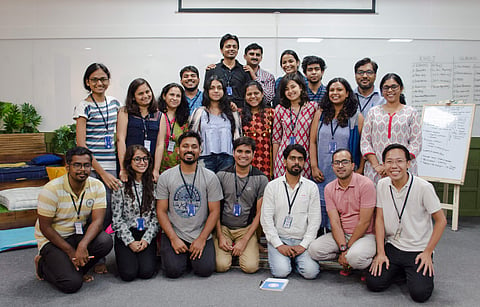

Rhea Pandey's biggest challenge growing up was dressing herself up. At just age one, she was diagnosed with a condition called pseudarthrosis of tibia, which meant that every time she moved, it caused her extreme pain. But not being able to do something as normal as dressing up was the most frustrating. She had to wear a brace throughout and had to find shoes that would fit her or jeans that weren't tapered. Every now and then, her mother would have to visit the local tailor and get clothes customised for her.
So when Rhea grew up, she knew that she had to find a solution to this. In college, she took up a course on entrepreneurship called New Venture Planning. The students had to come up with problems they have faced and think of entrepreneurial solutions for them as well. That's when she decided to create a disability-friendly clothing line as there are hardly any brands in India that do this. Started in 2018, Rhea's venture Wearability is still in the prototype stage and has several products that can be customised to a disabled person's requirements.
Explaining her products, Rhea says, "We have adaptive shirts that have a concealed velcro zipper. People who have arthritis can't always put on their shirt buttons, so this is much easier to close." She adds, "We also have adaptive undergarments. People tend to slip when they try to get dressed in the bathroom. These undergarments have hooks or buttons on the side so that they don't have to lift their knees." Wearability has also come up with wheelchair pants, which are much higher at the back. "There are some basic problems for wheelchair-bound people. When you are always seated, it's easier for the pants to slide down. So the material has to be a lot longer," she explains.
Speaking about the research involved, Rhea says, "I don't come from a fashion background, so there's a lot of market research that needs to be done. We visited a few old age homes, doctors and patients and came up with a list of products that can cater to a larger audience. These products are intimate, so we had to ensure they are durable and customisable." When asked how much these products change someone's daily life, Rhea replies, "Sometimes, you don't even realise you need something until you see it. And India is not the best when it comes to accessibility. There is a certain segment that wants to look and feel good. It's important to give them that basic right."
